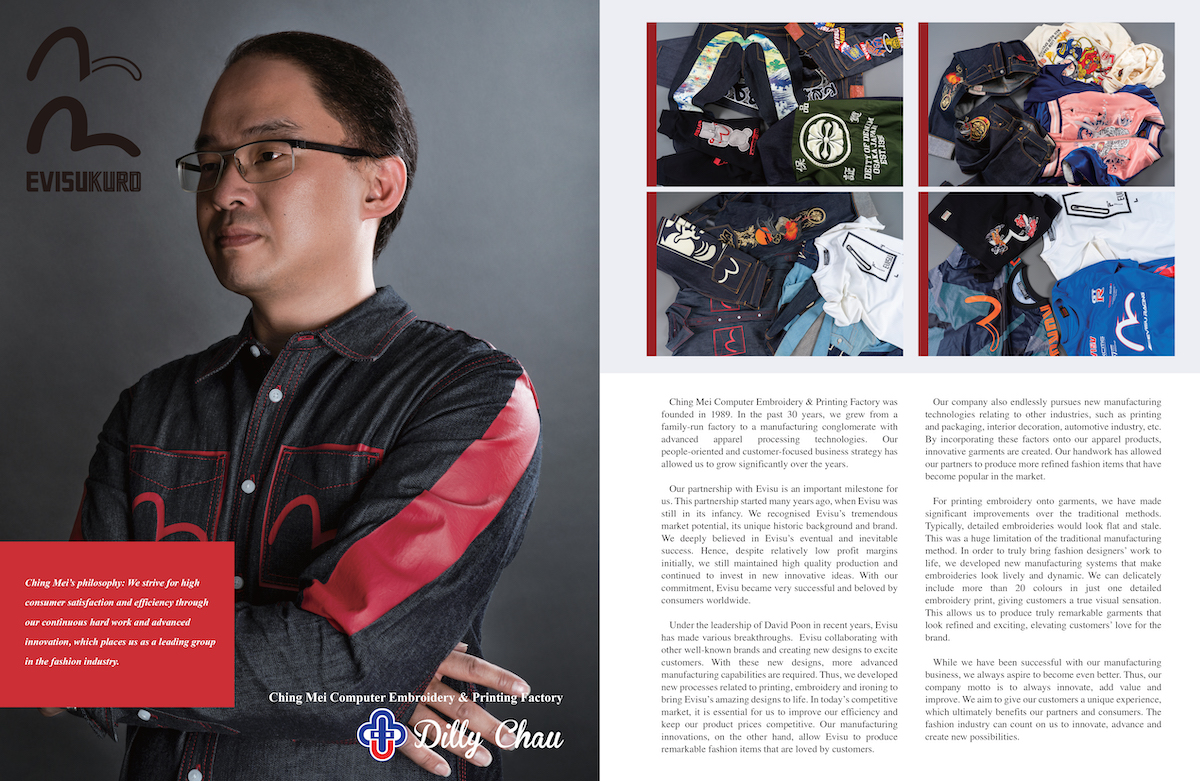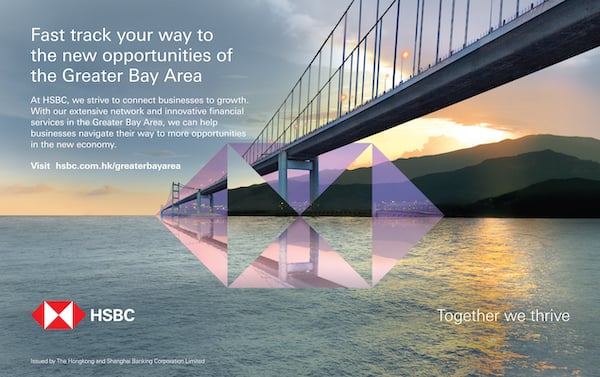The Japanese deity Ebisu, besides being the god of fishermen, is also the god of prosperity and luck. To look at apparel manufacturer Evisu today, which draws its name from said deity, one could surmise that the choice of name was an auspicious one, or perhaps a display of prescience, given its modern prosperity. But when Chairman and CEO David Pun first became involved with the company (as an executive director on a private equity team), it wasn’t nearly living up to its divine namesake.
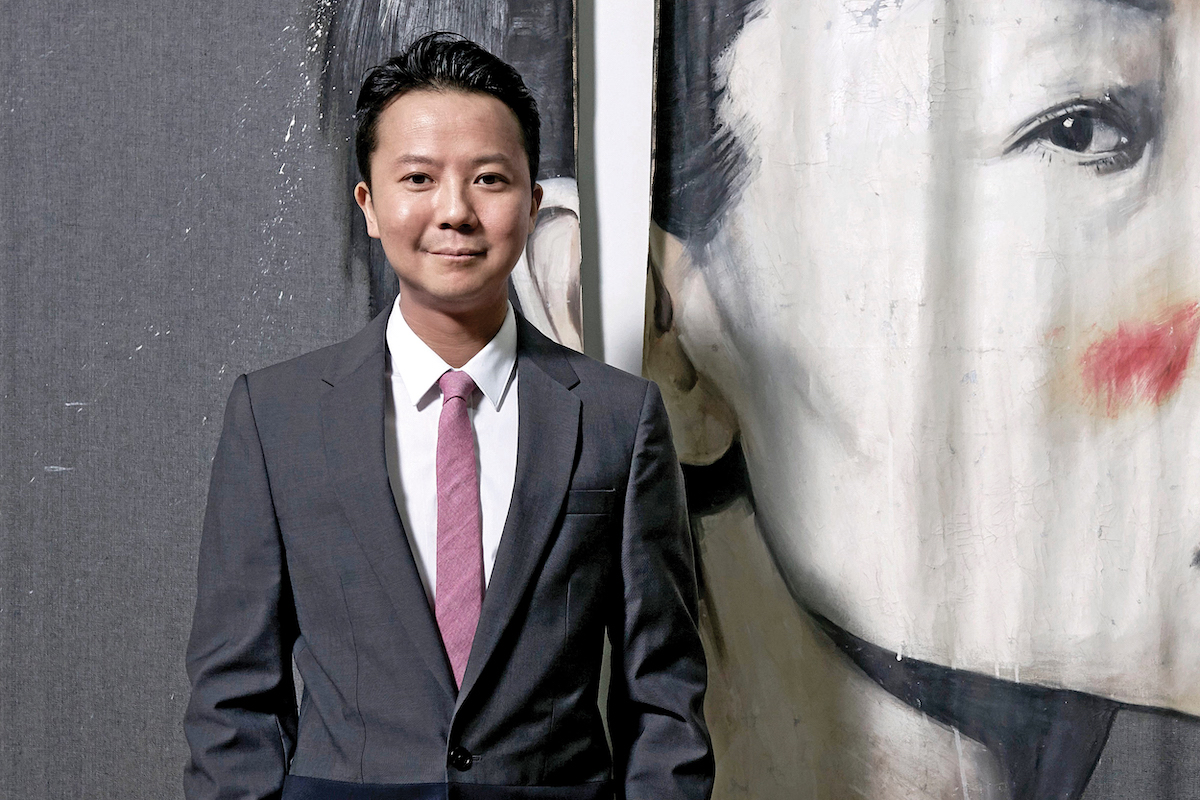
“For many different reasons, the brand was grossly mismanaged at the time,” David explains. “But I thought there were massive opportunities for Evisu, even though the investment fund had essentially given up on it. It was losing almost US$8 million a year. The fund was just tired of all these different turnaround initiatives. My boss would convince them of the need for these changes, but then things just wouldn’t work out.
“I flew to New York and convinced the founder of the fund that there were all these opportunities and that the turnaround strategy was sound but, even having said that, they’d already made up their mind. In hindsight, I don’t know why I came up with the idea, but I just thought, ‘Why don’t I raise some capital and buy it?’ Because at the time, there was a huge opportunity, especially in Asia.”
It was bold, ambitious and not without risk. David spent six months trying to raise the capital, with friends and family lending a hand, by taking on some of the debt. Even then, David had to resort to mortgaging his mother’s house. But he was successful in raising sufficient capital; in 2010, David took over the company, and initiated a major overhaul of the struggling manufacturer.
“The first thing when we went in was to make sure there was a sound strategy, to instil focus and discipline within this company, and try to make things simple and efficient,” he says. “Most importantly, we were trying to make sure this company could survive. So, I made the tough decision to exit the US and European markets. To me, it was a strategy of taking one step backwards, trying to align the company, and then taking two steps forward.
“We were trying to make sure this company could survive.”
“We thought there was a massive opportunity in stabilising the business and aligning the costs. We rebuilt design and marketing, and essentially relocated the headquarters from New York back to Asia. We also did things like re-merchandising the collection. Back then, we had almost 1,000 stockkeeping units, but we had to cut it down to nearly 300.”
At the time of the purchase, Evisu was saddled with a US$50 million debt, and David had to negotiate with major shareholders to restructure the company. Though it was a tough starting point, he was able to get the company back into the black after the first year, making Evisu a real turnaround success story.
Expenses were cut from US$12 million annually to US$4 million, and the brand’s Asia presence was heavily boosted; when he’d started, there were only 20 standalone shops in Asia, but today there are 180 across the continent.
Once the company had restructured, simplified and was back on a solid footing, Evisu started to diversify its offerings. To this day, Evisu is still considered a denim brand, but David has been hard at work diversifying the brand’s offerings – outerwear, sweatshirts, shoes, underwear, kidswear.
It’s David’s ambition to transform the apparel manufacturer into a global lifestyle brand; he eventually hopes to re-enter the US and Europe, which were after all once Evisu’s biggest markets, even if the company was struggling at the time.
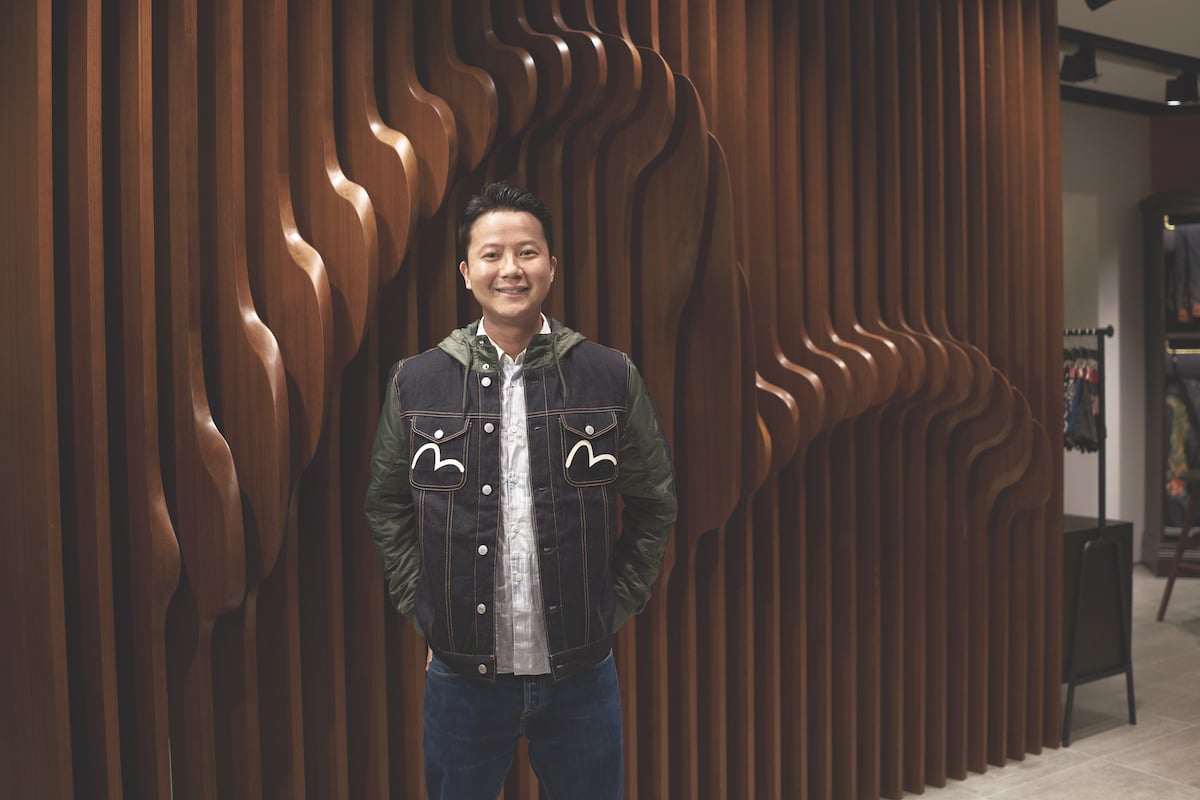
For others who might go through the same thing, David’s advice is to commit to your decisions. “Stick with your gut about what you think something’s worth,” he says. “When I made this investment back in 2010, it was ballsy. I’d done the math and I felt the risk-reward was in my favour. You’ve got to spot these special risk-reward opportunities, these inefficiencies within the market. You can find something that is truly in your favour, so you’re willing to risk it.”
Even with the financial roller-coaster of Evisu’s past decade – the restructuring and the regional departures – the brand remains a far cry from its early incarnation. When Hidehiko Yamane founded Evisu in Osaka, in 1991, he made a maximum of 14 pairs of jeans each day.
Produced by authentic looms (which had been sold off by Levi’s after they automated their production), each pair featured Yamane’s famous handpainted seagull symbol. But the history of Evisu jeans is hardly worth repeating; since its origins in the early 1990s, the brand has maintained a powerful cultural cachet, buoyed by the traditional, high-quality production process and the instantly recognisable seagull.
Evisu’s prestige has seen it displayed in publications such as Dazed & Confused, and earned it countless name-drops in hip-hop, from artists as influential as The Carters, Lil Wayne and The Game.
In fact, David is banking on the association between hip-hop (which he notes has become the dominant genre in pop culture) and streetwear to promote Evisu. Though it’s too early to name names, David has spoken with some of hip-hop’s biggest stars, in pursuit of promotional partnerships. These celebrities, David assures The CEO Magazine, are just as thrilled as the Evisu team about the prospect of the brand re-entering the US.
“We try to instil a new perspective around our products and capture a new audience.”
Creative partnerships are a key strategy behind David’s efforts to maintain public awareness and cultural relevance. Some of these distinctive relationships include a limited-edition line with US sportswear manufacturer Champion in 2017, and another line with Pepsi a year later.
Perhaps Evisu’s most out-there marketing move was a partnership with Durex, producing a denim condom pouch (replete with collaboratively produced condom). Marketing campaigns have employed a similar attention-grabbing strategy, with a series of ads by controversial fashion photographer Terry Richardson.
“We wanted to appeal to a younger audience,” David says. “We’ve done a lot of that through these collaborations, where we try to instil a new perspective around our products and capture a new audience. This all helps us blur the boundaries by appealing to the customers in different ways. We’ve done things like install a Japanese mixologist bar in our Hong Kong concept store. It’s broadening Evisu’s values and products, as well as making sure that people can view us as a lifestyle brand.”
David says this image shift has worked; where once Evisu attracted a 25-plus, young professional customer base, the brand has earned an awareness among even younger customers. According to David, the move towards athleisure products such as Evisukuro has driven a demographic shift, with those as young as 18 saving up for their first Evisu piece by subsisting on ramen for a few weeks.
Evisu has focused a lot on localising design aesthetics that target Asia and evolving the brand image to match. A major priority for David has been an effort to foster and support local Asian designers, further building the brand’s cultural relevance in the region.
Previously, the brand had drawn on designers in Europe and the US, in part due to a perception that that’s where fashion talent came from, but David believed differently.“There’s a lot of talent in Asia,” he explains.
What is selvedge, anyway?
It’s a term that goes back to the 16th century, as a corruption of “self-edge”. Put simply, it’s the “self-finished” edge of the fabric that doesn’t need additional hemming and won’t fray or unravel. Selvedge denim is a little more complicated, but it’s a fabric produced with old-fashioned weaving methods that result in a high-quality, tougher fabric.
It was popularised around the mid-to-late 20th century, but as US denim producers modernised their production methods, selvedge denim (produced using a loom) became obsolete. Nevertheless, it has experienced a resurgence, thanks to the handcrafted, high-quality techniques involved, and Japanese mills are considered to be the market leaders.
“In fact, one of the reasons we were able to turn around so well was that we predominantly used Asian designers. They’re able to understand what’s happening in the market and what the customers want, as opposed to a lot of Western designers we’d worked with. They had their own perception of what Evisu should be, and they were trying to make Evisu look like G-Star RAW or Diesel, but we have our own DNA, our social stamp.”
Though it’s helped Evisu take the Asian market by storm, this distinctive, locally crafted image will equally help Evisu make the move back into the West. David says the US and European markets are in a prime position to be shaken up, no doubt thanks to the over-reliance on Western designers.
“Evisu can offer customers some newness because the denim brand has been quite obviously stale, especially in the Western markets. As well as strengthening the brand globally, we’re continuing to diversify in terms of geography and products.
“We’re working on exploring different licences, too. Our vision is about how to leverage our existing relationships and network. We want other brands that are looking to enter Asia to consider us to be a leading retail distribution platform. That’s how we see the brand evolving.”
“We want other brands who are looking to enter Asia to consider us to be a leading retail distribution platform.”
Evisu’s overhaul required more than just transformation of geography or products. One of David’s challenges was convincing the Evisu team of the capacity for a turnaround. Although the leadership of the private equity fund had remained intransigent, it was clear to him that he needed to inspire the remaining team in Asia, instilling in them a sense of purpose and a drive to execute.
“It was essential to explain the strategy and be transparent because often in these turnaround situations, existing employees are confused and worried,” David explains. “Who’s going to get laid off? It was quite important for me to be transparent in terms of where we were going and how we were going to do it, as opposed to just executing an order.”
Equally integral to the process was agility, David says. He still thinks of Evisu as a start-up, and given the radically transformational process the company went through, it’s fair to say that David practically started a new company when he took it over.
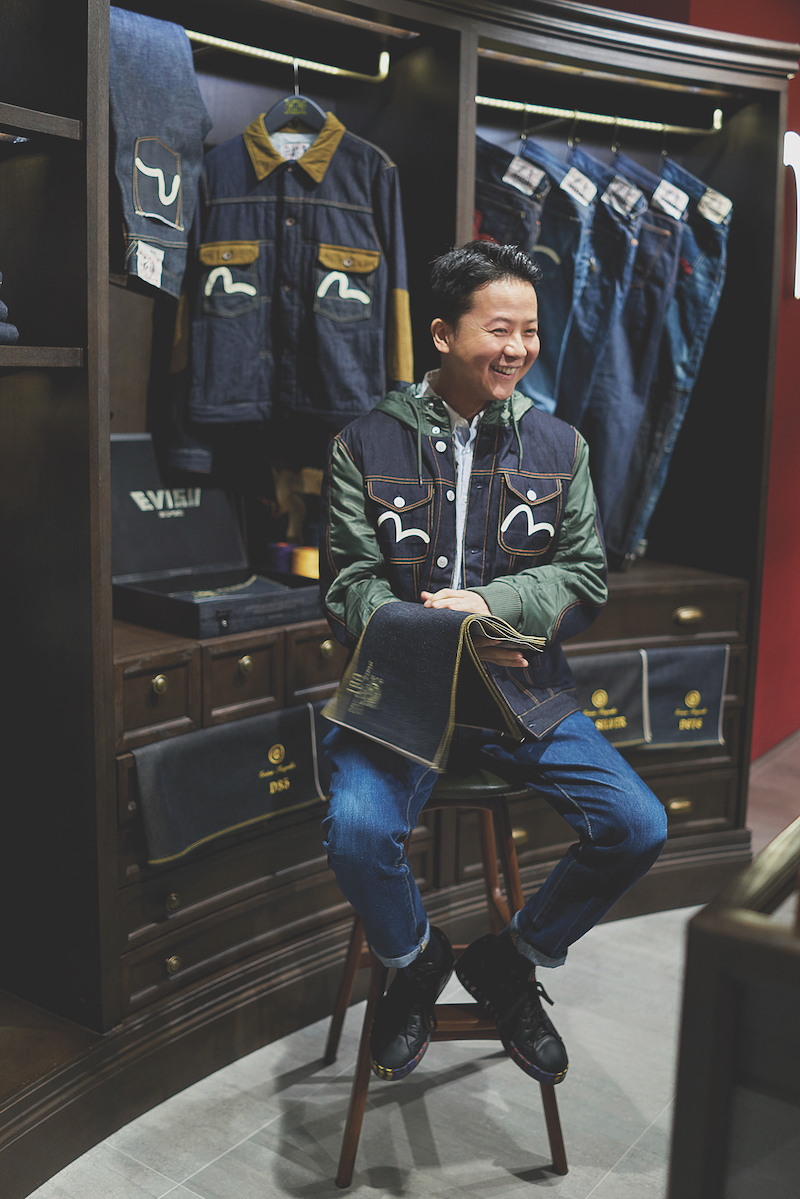
This mentality translates to a willingness to be continually learning, improving and not settling for less. Though the bulk of the work was done in 2010, David isn’t resting on his laurels, as evinced by the ambitious and creative collaborations of recent years.
Finally, David believes the turnaround was made possible by a pair of traits that exist on opposite ends of the spectrum, though paradoxically perhaps, one led to the other. The first was the ability to recognise that in certain areas of Evisu, he needed to be able to step back, to let the abilities of others reach their full potential.
The other necessary skill was the ability to challenge conventional wisdom; after all, dogged adherence to conventional wisdom has seen many companies fall by the wayside. “Having the right balance between commercial and creative, that’s perhaps where I was effective,” he says.
“Obviously, I’m the commercial guy. But it’s about how to give that freedom to the creative side and balancing it, not having come from a retail and fashion background. It could have become an advantage for me in the sense that I tell my colleagues we have to always question the norm. ‘This is how it’s always been done, but why can’t we do it in another way? Why does it have to be done that way?’
“We started questioning the norm and even challenging so-called experts. At the end, we stuck with our convictions. When I started out, everyone said, ‘David, you’re the investment fund guy, you don’t know anything about fashion and retail. Exiting the European and US markets will be the end of the brand.’ But it was about questioning things and just trying to get the company to survive. That was perhaps why we were able to turn the brand around so quickly.”
One of the more important lessons David has learned (even before his career began) is the importance of getting stuck in whenever and wherever necessary, an idea he picked up from his high school squash coach.
At the age of 85, that coach would unclog the squash court’s toilets or pick up rubbish from the court, such was his dedication to the school. That attitude has, years later, been mirrored in David; when Evisu’s US headquarters were being closed, the removalists had left the rented SoHo office in a state of disarray and David was among the first to grab a broom and start sweeping up.
It’s his belief that a leader must be hands-on, but more than that, patient and selfless – something he learned equally from his sister. “She’s like my second mother, my sister,” he explains.
“You have to nurture ideas, work with your team, support them and establish a dialogue to help them grow.”
“She inspired me to be patient with my colleagues. It’s about teamwork and not about yelling at them, issuing instructions and telling them to execute. You have to nurture ideas, work with your team, support them and establish a dialogue to help them grow.”
Even today he lives that belief, meeting each month with department heads, encouraging new ideas about everything from supply chains to technology. In fact, Evisu pushes its factories to embrace innovation and invest in the future, even while retaining that heritage of authentic production.
In a similar vein, designers are encouraged to travel the world, observing new fashion trends, but again, maintaining Evisu’s heritage as the central focus. Having had such an eventful career as the head of Evisu – particularly during that first year or two – you might think David would take on light, carefree hobbies.
Though Evisu jeans include six different fits, David himself prefers the 2017 Carrot fit, a drop-crotch style that tapers at the ends of the legs. But outside Evisu’s denim line, David is a fan of what he calls “jean sweats”, which are lighter and more comfortable than jeans, but still offer that classic Evisu denim aesthetic.
But this couldn’t be further from the truth; in his downtime, David is heavily invested in sports car racing, which he says he loves for the “adrenaline and competitive spirit”. “It’s like anything in life,” he reasons.
“There are risks and rewards and it’s something that I feel is my passion, despite a lot of opposition from my family members, like my mum. But it’s something I really enjoy doing.”
It’s only his third year of racing, but David has won races in the China GT Championship series and the Blancpain GT World Challenge Asia. He has raced an impressive menagerie of high-octane luxury cars, including Ferrari, Renault and Aston Martin, and he’s particularly excited about driving a GT4 in November’s Macau Grand Prix.
It’s counted among the world’s most challenging courses – last year, driver Sophia Florsch suffered a spinal fracture after losing control and clearing the fence. As David says, it’s a high-risk, high-reward pursuit, so he naturally finds a symmetry between the sport and his own career – after all, taking over Evisu was nothing if not a risky move that paid off big-time.
“You have to look at the initiatives you’re running. Are they working? If not, how can you immediately change your tactics?”
“In some way, there’s a lot of similarities to business. My perception was that racing isn’t just about driving aggressively, it’s also about being finessed. It’s being slow in, fast out. It’s like in business how you can always say, ‘Hey, I want to open 100 stores in one year,’ and then you’ve expanded too fast. Sometimes you have to slow down. It’s like how we had to pull out of the US and European markets. At the same time, when we’re ready, we can grow faster.
“There’s a lot of preparation – fitness, studying YouTube videos or even practising in the simulator, and studying the talent metrics, because once you get all the data that you can study, it’s like retail where it becomes about details. It’s not unlike learning how to manage your retail business day to day. You have to look at the initiatives you’re running. Are they working? If not, how can you immediately change your tactics?”
Proudly supported by:
